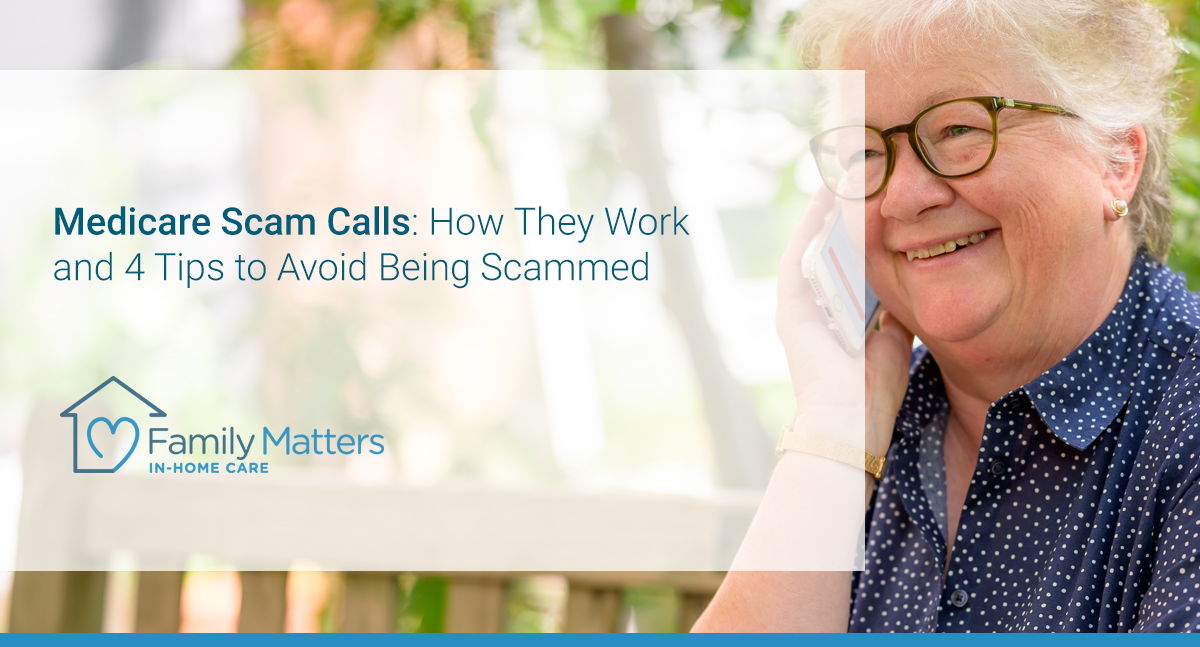
Medicare Scam Calls: How They Work and 4 Tips to Avoid Being Scammed
Telephone call scams are not a new occurrence. Unfortunately, scammers have been using fraudulent phone calls to manipulate personal information out of people for as long as the telephone has been a common household item. Often, scammers attempt to steal their victims’ identities and gain access to their bank accounts.
Scammers tend to go after groups of people who might be less suspecting of telephone fraud, which includes the elderly. Telephone scams are more likely to be effective when the scammer claims to be an employee of an entity that the individual has dealt with in the past, and for older folks, Medicare is the perfect example of such an entity.
How Medicare Scam Calls Work
Generally, Medicare scam calls begin with the person on the other line claiming to be a Medicare representative. The scammer will claim that the individual’s information on file needs to be updated or that they have an overdue balance that needs to be paid. They will then ask for personal information, such as their name, date of birth, credit or debit card information, and Social Security number.
Some criminals running Medicare scams will even go the extra mile to make themselves sound more legitimate. They may collect some basic personal information about their victim before calling, such as their name or date of birth.
When the victim of the scam learns that the supposed Medicare representative already has this information, they’re more likely to trust them with even more personal information.
Unfortunately, Medicare scam callers can be very persuasive and persistent. They may appeal to emotion to get a victim to give up their information or make it seem like something very bad will happen if the victim’s information isn’t updated in the system right away.
This level of manipulation and panic tactics can sometimes convince even the most skeptical people to do what the caller is asking.
4 Ways to Avoid Medicare Scams
Medicare scams are a very real threat to elderly people, especially those with Alzheimer’s and dementia diagnoses, who may not be able to protect themselves from the manipulation of these scam callers.
Here are four effective ways to spot and avoid Medicare scam calls. If you identify an unfamiliar caller as a scammer, make sure to report their number to your phone company as soon as possible. Medicare even has a hotline specifically to report fraud: 1-800-HHS-TIPS.
1. Don’t Answer When Unknown Numbers Call
If you’re using a landline with caller ID, make sure all of your trusted family members and loved ones are saved in the contact list so that you’ll know who is calling when your phone rings. You can do the same for a cell phone so that the names of your family members, friends, and physicians’ offices will make it clear who is trying to reach you.
If an unknown number calls you, it’s best not to pick it up. If a person you know and trust is calling you, they will likely leave a message telling you who’s calling, at which time you can return their call with full confidence.
2. Talk to Your Phone Company About Limiting Calls
One of the biggest signs that a caller is trying to scam you is repeated calls from the same or similar numbers day and night.
If you’re receiving calls like this at this frequency, contact your phone company to let them know about the situation and see if they can block these numbers or limit calls from certain area codes. At the very least, the phone company can support you if you decide to contact larger entities like the FBI about the fraudulent calls.
3. Remember What Real Medicare Employees Would Do
If you receive a call from a supposed Medicare employee asking for your information, this premise should be your first red flag that something isn’t right.
Medicare will only call you directly if they’re returning a call you’ve already made or if your specific healthcare provider is trying to reach you. However, a Medicare employee will never ask for any payment information or extremely personal details like your Social Security number over the phone.
Additionally, if the person calling you shows signs of frustration, anger, or aggressiveness, you’ll know immediately that this is a scam caller. An actual Medicare employee will never have reason to become frustrated or upset with you for withholding personal information, and they will never contact you repeatedly.
4. Call the Company Yourself
If you’re on the phone with a caller claiming to be from Medicare, hang up and call Medicare yourself. This way, you’ll be able to find out whether they have a reason to contact you or if the person calling you was seeking to commit fraud.
Stay Vigilant
Knowing that a Medicare scammer could be just one call away is stressful. But as long as you take the proper precautions and arm yourself with knowledge, you’ll be able to recognize these scams for what they are and protect yourself from fraud.
If you or your family member is considering in-home care as part of a plan to age in place, contact Family Matters In-Home Care today for a free consultation. Our team is dedicated to supporting your family and helping older adults enjoy life in the comfort of their own home for as long as possible.
Some of the services offered by Family Matter In-Home Care include: Alzheimer’s & Dementia Care, Bed & Wheelchair Transfer Assistance, Companionship, Housekeeping & Meal Preparation, Personal Care, Recovery Care, and Transportation.
Serving the San Francisco Bay Area and Greater San Diego, Family Matter In-Home Care has offices throughout California including: Campbell, CA, Roseville, CA, San Marcos, CA, and San Mateo, CA.
